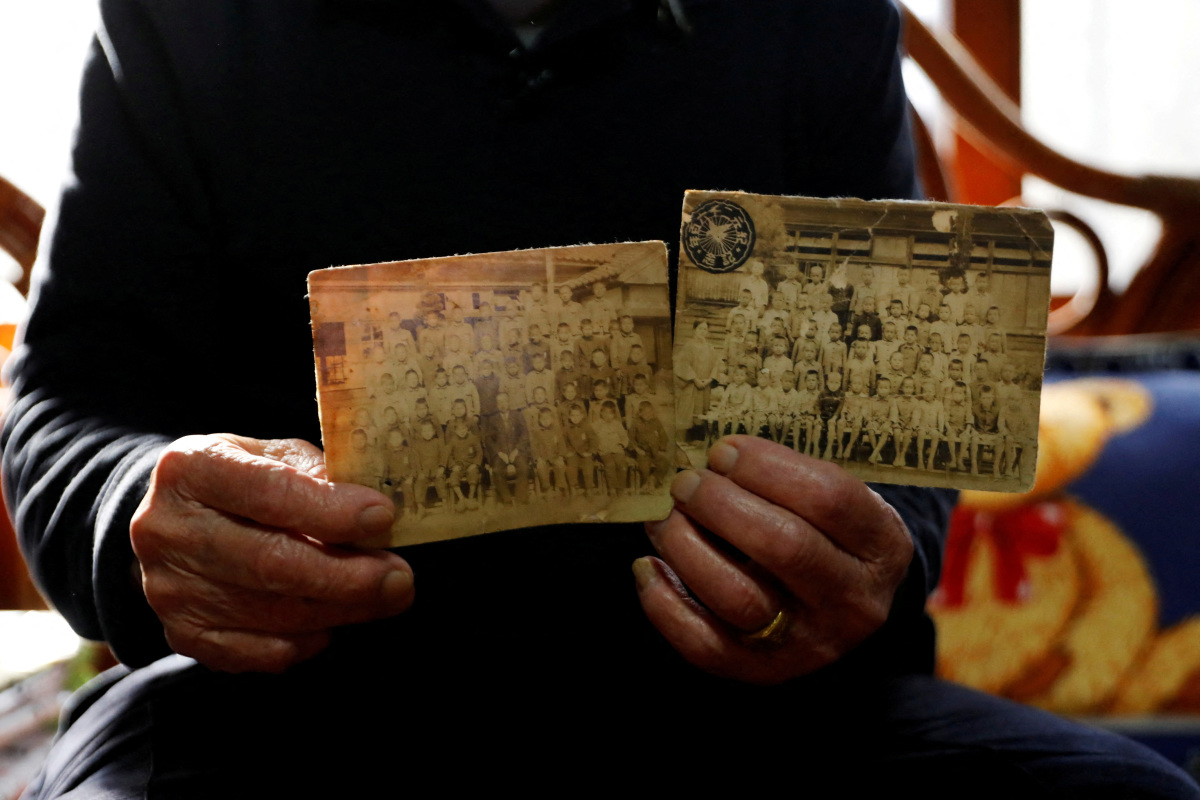Reuters
On a crisp February morning, four elderly Korean men bowed their heads towards Japan’s Seto Inland Sea as the surf lapped near their shoes.
They were paying respects to relatives entombed in a coal mine deep beneath their feet 80 years ago – among thousands of Korean bodies scattered across Japan in an enduring symbol of a colonial past that has long blighted ties between the neighbours.
But with renewed diplomatic efforts to improve relations, families of the men drafted to support Japan’s war effort in what is known as the Chosei mine during its 1910-45 occupation of the Korean peninsula, see a last chance for closure.
“It is now or never,” said 75-year-old Yang Hyeon, whose uncle was among 136 Koreans and 47 Japanese killed when the leaky mine beneath the seabed on southern Japan’s coast collapsed and flooded in 1942.
“Now that things are apparently getting better with Japan, I’m asking the two governments to think about us.”
Yang, who attended the low-key ceremony in the town of Ube on Feb. 4, is part of a group of family members and residents urging the two governments to dig up the bodies and send them home.
The remains of as many as 10,000 Koreans who died in forced labour, digging mines or building dams, are still in Japan, according to South Korean government estimates. Japan says it has identified 2,799 remains of Korean wartime labourers.
Efforts to repatriate them have gone nowhere for more than a decade but since taking office last year, South Korean President Yoon Suk-yeol has sought to settle historic issues with Japan and focus on shared, present-day threats such as nuclear-armed North Korea and China.
Those overtures, which resulted in the first talks between the country’s leaders in years in September, have given hope to the elderly relatives of the Chosei miners that they may still live to see their loved ones’ remains returned home.
“We’re running out of time,” said Son Bong-soo, a grandson of one of the victims, who at 65 is the youngest family member in the group. “Once we die, no one will care.”
In 2005, Japan announced a push to return the remains of Korean wartime labourers, but the initiative made little progress and petered out several years later amid souring relations.
“We expect to have a positive conversation with Japan over repatriation of the remains as now South Korea and Japan both have a strong will to resolve the forced labour issues,” South Korea’s interior ministry, which handles colonial-era forced labour disputes, said in a statement.
The ministry said it had not discussed specific cases such as the Chosei miners.
Japan’s foreign ministry said it had been in communication with South Korea about wartime labour issues but could not disclose details.
GRIM CONDITIONS
One of the challenges at Chosei is the expense and logistics of excavating bodies from a submerged mine that extends at least 1 km out to sea and nearly 40 metres underground.
Japan’s labour ministry, which said it had previously conducted a study of the incident, told Reuters the cost of an excavation would likely run into millions of U.S. dollars.
But campaigners argue that is a price worth paying to recognise the hardship and injustice that the families endured.
According to a 2007 report on the Chosei mine commissioned by South Korea, workers mainly drafted from poor farming towns in Korea lived in packed dormitories surrounded by high fencing and were regularly beaten by Japanese supervisors.
Living conditions were so desperate that in 1939, more than 200 workers staged a protest, breaking windows and a telephone inside the mine’s management office, the report said referring to a Japanese government statement at the time.
In the months before the mine collapsed, there were constant leaks and pumps were installed to draw water out of the shaft to keep it operational, according to testimonies of surviving miners cited in the report.
‘NEW PATH’
Now 89 and using a hearing aid and walking stick, Jeon Seok-ho vividly remembers the morning his father died in the mine when he was eight years old.
His teacher told him that there had been an accident and to go straight home. As he rushed back along the shore, he spotted columns of water spouting from the sea above the mine. Then he heard the wail of the villagers as they watched the waters rise up to the mine entrance, he recalled.
“It ended just like that. I lost my dad,” Jeon said.
After the war, Jeon returned to Korea but his family struggled to live off the meagre income his mother made selling rice cakes and what he could muster driving cattle for farmers.
Growing up, he said he often thought of his father, trapped in the water so far away, but as the years pass he is losing hope of ever bringing him home.
“The governments are paying lip service to us but actually have done nothing,” he said as he watched a video of the recent ceremony on YouTube at his home in Daegu, South Korea.
His mood lifted when Yoko Inoue, the 72-year-old Japanese head of the campaign group pressing to retrieve the remains, appeared on screen.
“Inoue-san, hang in there!” Jeon shouted, breaking into Japanese.
Back in Ube, Inoue told Reuters that if left untouched, the bodies at Chosei would forever be a symbol of the two countries’ bitter past. But if recovered, they would serve as a show of unity.
“We have a great opportunity,” she said. “There’s momentum now, and the Japanese and Korean governments are trying to reconcile their differences.”
“That also means unearthing historical problems. But given that there are both Japanese and Korean people there, this could forge a new path if both governments could work together.”






